Lincolnshire - What’s not to be proud of?
We’re home of a cathedral that was the tallest building in the world for 238 years. Birth palace of Newton. Miles of sandy beaches and wide-open spaces.
On the other hand…
We’re the second biggest county in the country. People are few and far between 42nd of 48 counties for density. South Holland has just under 100 people per sq. km, compared to a national average of almost 250.
We have less than 20 miles of motorway – the M180. Broadband speed can be as low as 13.7Mbps. There are limited bus services (and no bus service for one in four parishes).
There are 123 disused railway stations and only 19 currently operating.
In short, living here can feel like you’re in a big old lonely place.
Especially if you need to talk.
What? Lincolnshire men talk!
Yes. Talk. Not of ‘manning up’ and ‘growing a pair’.
It doesn’t wash with me.
Lincolnshire County Council (LCC) figures show that male suicide rates in the county are above the national average.
Most male deaths were men in their prime those aged 35-44, and there was an increase in number of young people under 18 years.
Basically, we need to start looking after ourselves.
And that starts by talking properly.
Lincolnshire - Let’s make it easier for men to talk
Typically in rural Lincolnshire, men are least likely to take sick days or holidays and are most likely to report poor physical health. There’s also a high incidence of smoking, drinking regularly and eating no fruit or vegetables.
For farmworkers, the suicide rate is twice the average for all occupations (ONS, 2016).
It’s no rural idyll.
Lincolnshire - The curse of “tradition”
There can also be the pressure of maintaining the legacy of the family farm or business and living in a close-knit community where there’s a feeling of a stigma of failing to keep generations of tradition going.
This 'keeping going as before' and expecting a different outcome. That’s called madness.
Hypnosis, hypnotherapy and Cognitive Behaviour for Lincolnshire
Okay. So it looks like I’m painting a bleak picture of the county.
I’m not.
I was born here.
I’m a yellow-belly.
I choose to live here.
It’s just that in my line of work as a Cognitive Behavioural Hypnotherapist people don’t come to see me if they’re happy!
What I’ve outlined in stark terms is the county we live in and what can happen when negative thoughts, feeling and actions go left unchecked.
Across Lincolnshire, there’s loneliness, low-esteem and stress - but they can all be dealt with
Hypnosis is simply a way of focusing attention, relaxing the mind and making it open to new ideas that change negative thinking patterns.
Hypnotherapy is the process of using hypnosis to ‘land’ powerful positive messages that re-wire the brain to think in a way that’s less harmful to you.
Cognitive Behavioural Therapy (CBT) is a way to help you understand the thoughts and feelings that influence your behaviour.
You learn how to identify and change unhelpful thought patterns that have harmed your behaviour and emotions. It’s how you can take control of how you interpret and deal with life.
The NHS states, “Cognitive Behavioural Therapy teaches you useful and practical strategies that can be used in everyday life, even after the treatment has finished.”
This is the manly bit, it isn’t always easy
Confronting emotions and anxieties that bring uncomfortable feelings to the surface.
Another way of looking at this is that you the client have to believe I understand you. I accept and support you regardless.
If we can get these things working then hypnosis can be a powerful tool for changing you for the better.
I link cognitive behaviour to hypnosis. So in a hypnotic state, I can change behaviour, physical reactions, beliefs as well as emotional responses.
It’s an effective way to use your subconscious mind to influence your conscious mind and your willpower.
This allows you to make powerful, deep changes and enjoy living here in Lincolnshire.





